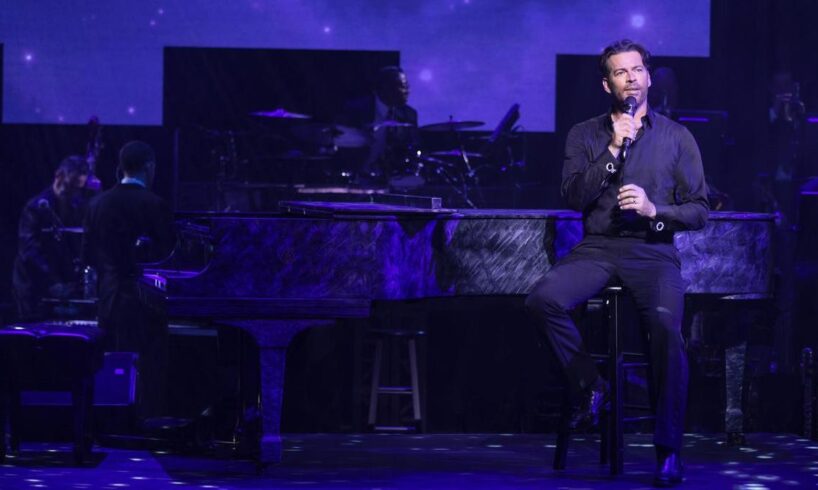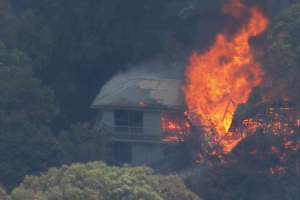
For Harry Connick Jr, performing in Australia feels less like touring and more like coming home.
“I have a special place in my heart for the whole country,” he tells AAP.
“I started going down there probably in the early ’90s and I just remember feeling a kinship with Australians.
“I think it’s because they’re pretty laid back, they love to have a good time and they’re just kind people.”
That sense of familiarity runs deep for the New Orleans-born musician, who draws a direct line between his hometown and his adopted second home.
“Where I grew up in New Orleans, people were like that too,” he says.
“You might say people like to have a good time anywhere but I think certain places have a tendency to be maybe more vocal about it, maybe they’re a little bit louder in an audience. They’re just great.”
When Connick takes the stage at the Sidney Myer Music Bowl on Saturday, it will be as one of the headline acts at the Melbourne International Jazz Festival – the biggest in the event’s history.
For the Grammy, Emmy and Tony winner, it’s also something of a homecoming.
“I go there so much that there’s no culture shock – I almost commute there,” says Connick, who has a production house in Melbourne and spends about half the year there.
“It feels very much at home. I don’t hear an accent when I go, and I just feel like I’m in a home away from home.
“That’s a testament to how hospitable the people have been down there – across the board. It’s a great place to work and to be.”
View this post on Instagram
A post shared by Melbourne International Jazz Festival (@melbjazzfestival)
Harry Connick Jr loves performing in Melbourne.
The fact Connick’s daughters with wife Jill Goodacre live in Melbourne cements his affiliation.
“It’s is really great because they’re all in the business and we get to work together,” he says.
“It’s a wonderful place to create and it’s an environment that lends itself to new ideas – and there’s a lot of talent down there.”
That connection made the decision to headline the Melbourne festival an easy one.
“My production office is in Melbourne and I know the city really well, so when they called and asked if I would be a part of it, it just sounded great because I haven’t performed there in a little while,” he says.
“I love to play – and to play in a town like Melbourne, which is a real art hub.
“They have a great music scene, a great film scene and I feel like I’m playing for people who really dig it.”
Even when he’s performing for thousands, Connick says every one of his shows feel intimate.
“It always feels small, even if there’s 20,000 people there,” he says.
Connick began his career as a musician and has sold more than 30 million albums but also has a long-established cinema and television career.
Right now, he is writing a Broadway show, preparing to direct a film he’s penned, composing orchestral works and developing a book on creativity. But he rejects the idea that he’s juggling too much.
“I never think of it as juggling, because juggling implies multitasking, which I kind of think is impossible for me,” he says, calling his technique for handling his workload and life “lateral creativity” – the ability to move between projects without feeling overwhelmed.
“I think we have the mental capacity to do everything,” he says.
“I can be a husband and a father 100 per cent of the time, and I can also be a filmmaker 100 per cent of the time and a musician 100 per cent of the time.
“I’m so present that I don’t really consider it juggling – I just consider it all parts of my reality.”
One of the keys to feeling positive is to never let himself complain about anything.
“The day I stopped whining was the great equaliser,” he said, adding no one wants to hear him complain about a long day or a missed flight.
“Nothing is work, no matter how functional or non-artistic it is. It’s all part of this wonderful thing called life. What, am I going to complain about something I’ve wanted to do my whole life?”
Still, one future moment looms especially large.
In May 2026, Connick will fulfil his late mother’s dream by performing for the first time at New York’s Carnegie Hall – on what would have been her 100th birthday.
He’s written a symphony in her honour and is documenting the process with Orchestra Victoria in Melbourne.
“My mother always wanted me to play at Carnegie Hall and she died when I was 13,” he says.
“I wanted to save it for a special occasion, so I’ve waited five years. I’ve still never even been inside Carnegie Hall.”
He believes the concert will be “the most significant moment of my life as a performer”.
“Except the Melbourne Jazz Festival – that’s not far behind!”





